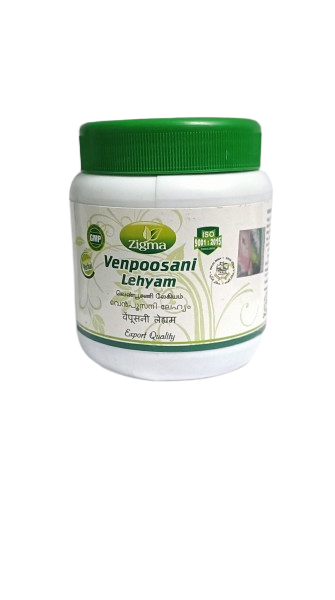Ashwagandha (அமுக்கரா கிழங்கு)
அஸ்வகந்தா மூளையை அமைதிப்படுத்தவும், வீக்கத்தைக் குறைக்கவும், இரத்த அழுத்தத்தைக் குறைக்கவும், நோயெதிர்ப்பு மண்டலத்தை மாற்றவும் உதவும் இரசாயனங்களைக் கொண்டுள்ளது. அஸ்வகந்தா மன அழுத்தம் மற்றும் பதட்டத்துடன் தொடர்புடைய பிரச்சனைகளை நிர்வகிப்பதற்கு உதவுவதாக அறியப்படுகிறது. இது நீரிழிவு மேலாண்மைக்கும் உதவுகிறது. இது பாலுணர்வு பண்புகளையும் கொண்டுள்ளது, இது சகிப்புத்தன்மை, ஆண் மலட்டுத்தன்மையை மேம்படுத்த உதவுகிறது மற்றும் விறைப்புத்தன்மை போன்ற நிலைமைகளுக்கு சிகிச்சையளிக்க உதவுகிறது. இதன் வேர் பொடியானது நரம்பு சம்பந்தமான பல்வேறு பிரச்சனைகளுக்கு நர்வின் டானிக்காக பயன்படுகிறது.
அஸ்வகந்தாவின் பயன்கள்
- மன அழுத்தத்தைக் குறைத்தல்: அஸ்வகந்தா அழுத்த அளவைக் குறைப்பதில் குறிப்பிடத்தக்க விளைவைக் கொண்டுள்ளது.
- கவலை நிவாரணம்: அஸ்வகந்தா பதட்டத்தைக் குறைப்பதில் தாக்கத்தை ஏற்படுத்துகிறது.
- மேம்படுத்தப்பட்ட தூக்கத் தரம்: அஸ்வகந்தா சாறு எடுத்துக்கொள்வதில் தூக்கத்தின் செயல்திறன், மொத்த தூக்க நேரம் மற்றும் தூக்க தாமதம் ஆகியவற்றில் அஸ்வகந்தா முன்னேற்றங்களைக் காட்டியுள்ளது.
- மேம்பட்ட ஆரோக்கியம்: அஸ்வகந்தா சாற்றை எடுத்துக் கொண்ட பிறகு மக்கள் அதிகரித்த அமைதி, மேம்பட்ட சகிப்புத்தன்மை மற்றும் உயர்ந்த மனத் தெளிவை அனுபவித்தனர்.
- குறைக்கப்பட்ட கார்டிசோல் ஹார்மோன் அளவுகள்: அஸ்வகந்தா, மருந்துப்போலி குழுக்களுடன் ஒப்பிடும்போது சீரம் கார்டிசோல் அளவை (அழுத்த ஹார்மோன்) குறைப்பதாகக் காட்டப்பட்டுள்ளது.
- சிறந்த தடகள செயல்திறன்: ஆரோக்கியமான பெரியவர்கள் மற்றும் விளையாட்டு வீரர்களில் மேம்படுத்தப்பட்ட VO2 மேக்ஸ் உட்பட தடகள செயல்திறனில் அஸ்வகந்தா நேர்மறையான விளைவுகளை ஏற்படுத்தக்கூடும்.
- அதிகரித்த டெஸ்டோஸ்டிரோன் அளவுகள்: அஸ்வகந்தா சப்ளிமெண்ட்ஸ் ஆண்களில் டெஸ்டோஸ்டிரோன் அளவை அதிகரிக்கலாம்.
- மேம்படுத்தப்பட்ட ஆண் கருவுறுதல்: அஸ்வகந்தா மேம்பட்ட விந்தணு தரத்துடன் தொடர்புடையது, இதன் விளைவாக ஆண்களில் கருவுறுதல் அதிகரிக்கிறது.
- இரத்த சர்க்கரை மேலாண்மை: அஸ்வகந்தா தனிநபர்களுக்கு பயனளிக்கும் நீரிழிவு அல்லது உயர் இரத்த சர்க்கரை அளவை.
- அழற்சி எதிர்ப்பு பண்புகள்: அஸ்வகந்தா உடலில் வீக்கத்தைக் குறைக்க உதவும் கலவைகளைக் கொண்டுள்ளது.
- மேம்படுத்தப்பட்ட அறிவாற்றல் செயல்பாடுகள்: அஸ்வகந்தாவை எடுத்துக்கொள்வது நிர்வாக செயல்பாடு, கவனம், எதிர்வினை நேரம் மற்றும் நினைவகம் போன்ற அறிவாற்றல் செயல்பாடுகளுக்கு பயனளிக்கும்.
- நரம்பியல் பாதுகாப்பு விளைவுகள்: அஸ்வகந்தா நரம்பியல் செயல்பாட்டை வெளிப்படுத்தலாம்.
- சாத்தியமான புற்றுநோயை எதிர்த்துப் போராடும் பண்புகள்: அஸ்வகந்தாவுக்கு புற்றுநோய் எதிர்ப்பு பண்புகள் இருக்கலாம், இருப்பினும் இந்த பகுதியில் இன்னும் ஆராய்ச்சி தேவைப்படுகிறது.
- தைராய்டு செயல்பாட்டு ஆதரவு: ஹைப்போ தைராய்டிசத்தால் பாதிக்கப்பட்ட நோயாளிகளுக்கு அஸ்வகந்தா உதவியாக இருக்கும்.
- தசை வலிமை மற்றும் மீட்பு: அஸ்வகந்தா சப்ளிமெண்ட் தசை வலிமையை அதிகரிக்கலாம் மற்றும் பிறகு மீட்க உதவலாம் உடற்பயிற்சி.
அஸ்வகந்தாவை எவ்வாறு பயன்படுத்துவது
அஸ்வகந்தா ஒரு பல்துறை மூலிகையாகும், இது மாத்திரைகள், காப்ஸ்யூல்கள் மற்றும் தூள் வடிவில் வருகிறது. மருந்தளவு மற்றும் பயன்பாட்டு முறை ஆகியவை ஒருவர் தீர்க்க விரும்பும் குறிப்பிட்ட நிபந்தனையைப் பொறுத்தது. வெவ்வேறு ஆய்வுகள் வெவ்வேறு அளவுகளைப் பயன்படுத்துவதால், நவீன மருத்துவ பரிசோதனைகளின் அடிப்படையில் நிலையான அளவு எதுவும் இல்லை என்பதைக் கவனத்தில் கொள்ள வேண்டியது அவசியம்.
Pregnancy:
Avoid Ashwagandha during pregnancy as it may increase uterine contractions.
Side Effects:
1. Sedation
2. Low blood pressure
3. Diarrhea
4. Nausea
Dosage:
1.Take one capsule of ashwagandha twice daily,preferably after meals or as directed by physician.
2.for better result, Swallow it with lukewarm water 1-2 times a day after taking food







Reviews
There are no reviews yet.